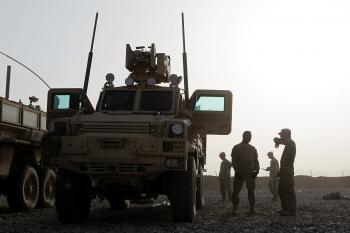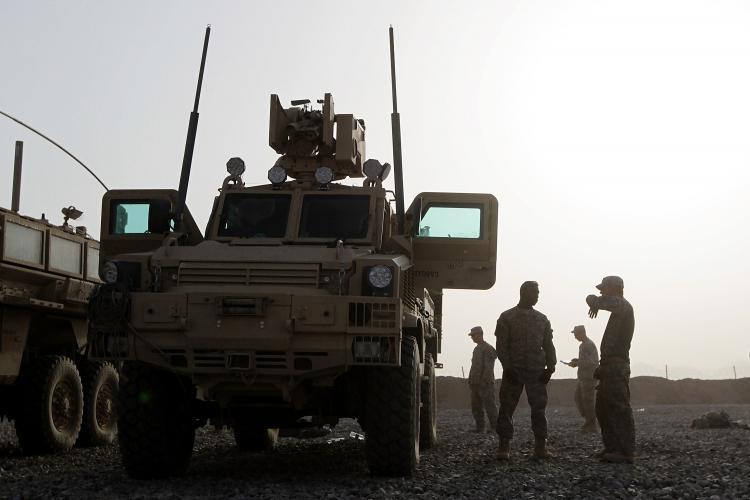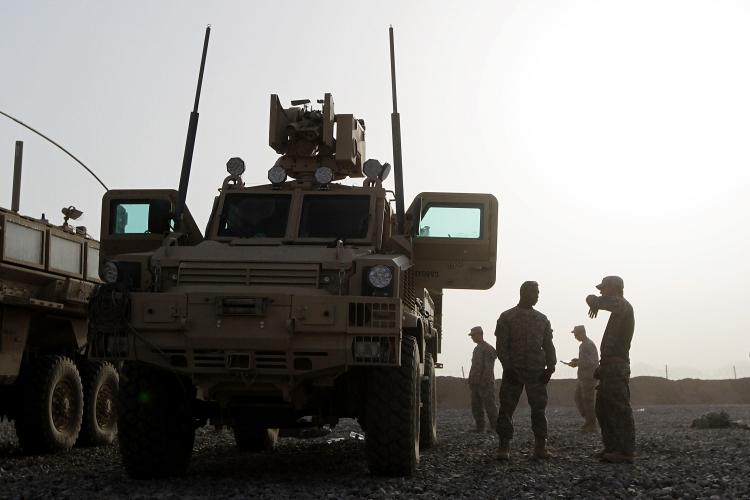Gen. Stanley McChrystal stepped down as commander of U.S. troops and the International Security Assistance Force in Afghanistan, and his replacement, Gen. David Petraeus, took the reins on June 30 with a unanimous Senate vote.
President Barack Obama said on June 23 that he accepted McChrystal’s resignation “with considerable regret, but also with certainty that it is the right thing for our mission in Afghanistan, for our military, and for our country.”
Obama added that the switch of command “will allow us to maintain the momentum and leadership that we need to succeed.”
McChrystal resigned with shame, and whether the war in Afghanistan will succeed is still a topic of debate. Despite this, it is known what needs to be done in Afghanistan: build a well-founded and trusted Afghan government, remove Taliban control from villages and towns, and train a solid Afghan security force.
One of the main factors blocking this U.S. goal has been corruption within the Afghan government, and its subsequent lack of trust from the Afghan people. Fixing this problem was already one of the main focuses of U.S. strategy, but was slow moving.
The House budget committee withheld $4 billion in aid for Afghanistan on June 30, due to allegations that Afghan officials and foreign contractors were pocketing aid funds.
The war in Afghanistan will also likely stretch beyond July 2011, which is the set date for a gradual withdrawal of forces. During a June 27 press conference, Obama said, “I believe we’ll need to provide assistance to Afghanistan for a long time to come.”
Republican National Committee Chairman Michael Steele also commented on July 5 about the war in Afghanistan, saying “That’s the one thing you don’t do is engage in a land war in Afghanistan. ... This was a war of Obama’s choosing.” He quickly withdrew his remarks after criticism from his party.
McChrystal referred to a military operation to retake the southern town of Maria as a “bleeding ulcer,” according to Rolling Stone.
Although McChrystal has been a great general—which both Obama and Petraeus acknowledge—the war in Afghanistan is in need of a new driving force.
This is where Petraeus comes in. Although the strategy remains the same, some extra gusto is precisely what Petraeus can bring. However, it is unlikely Petraeus will come with a new strategy, as he played a major role in laying out the current strategy in Afghanistan.
In addition to making further efforts to develop good relations with Afghan President Karzai—a task which McChrystal was among the few to accomplish—Petraeus will also soon be launching the awaited push into Kandahar, which remains a Taliban stronghold.
On June 29, during a confirmation hearing before the Senate Armed Services Committee, Petraeus said, “We are now increasing our focus on Kandahar Province, an area of considerable importance to the Taliban.”
According to AP, Kandahar “is the key to success or failure,“ Sen. John McCain (R-Ariz.) told a news conference at the airport in Kabul. ”So what happens in this operation will have a great effect on the outcome of this conflict. But I am convinced we can succeed and will succeed, and Kandahar is obviously the key area. And if we succeed there, we will succeed in the rest of this struggle.”
Special forces operations in the region have been ongoing “for some months,” according to Petraeus. Karzai and his ministers have also been holding Shura councils with leaders in the region.
“In the months ahead, we'll see an additional U.S. brigade, from the great 101st Airborne Division, deploy into the districts around Kandahar City, where it will operate together with an additional Afghan army brigade,” said Petraeus.
He added, “My sense is that the tough fighting will continue; indeed, it may get more intense in the next few months. As we take away the enemy’s safe havens and reduce the enemy’s freedom of action, the insurgents will fight back.”
President Barack Obama said on June 23 that he accepted McChrystal’s resignation “with considerable regret, but also with certainty that it is the right thing for our mission in Afghanistan, for our military, and for our country.”
Obama added that the switch of command “will allow us to maintain the momentum and leadership that we need to succeed.”
McChrystal resigned with shame, and whether the war in Afghanistan will succeed is still a topic of debate. Despite this, it is known what needs to be done in Afghanistan: build a well-founded and trusted Afghan government, remove Taliban control from villages and towns, and train a solid Afghan security force.
One of the main factors blocking this U.S. goal has been corruption within the Afghan government, and its subsequent lack of trust from the Afghan people. Fixing this problem was already one of the main focuses of U.S. strategy, but was slow moving.
The House budget committee withheld $4 billion in aid for Afghanistan on June 30, due to allegations that Afghan officials and foreign contractors were pocketing aid funds.
The war in Afghanistan will also likely stretch beyond July 2011, which is the set date for a gradual withdrawal of forces. During a June 27 press conference, Obama said, “I believe we’ll need to provide assistance to Afghanistan for a long time to come.”
Republican National Committee Chairman Michael Steele also commented on July 5 about the war in Afghanistan, saying “That’s the one thing you don’t do is engage in a land war in Afghanistan. ... This was a war of Obama’s choosing.” He quickly withdrew his remarks after criticism from his party.
McChrystal referred to a military operation to retake the southern town of Maria as a “bleeding ulcer,” according to Rolling Stone.
Although McChrystal has been a great general—which both Obama and Petraeus acknowledge—the war in Afghanistan is in need of a new driving force.
This is where Petraeus comes in. Although the strategy remains the same, some extra gusto is precisely what Petraeus can bring. However, it is unlikely Petraeus will come with a new strategy, as he played a major role in laying out the current strategy in Afghanistan.
In addition to making further efforts to develop good relations with Afghan President Karzai—a task which McChrystal was among the few to accomplish—Petraeus will also soon be launching the awaited push into Kandahar, which remains a Taliban stronghold.
On June 29, during a confirmation hearing before the Senate Armed Services Committee, Petraeus said, “We are now increasing our focus on Kandahar Province, an area of considerable importance to the Taliban.”
According to AP, Kandahar “is the key to success or failure,“ Sen. John McCain (R-Ariz.) told a news conference at the airport in Kabul. ”So what happens in this operation will have a great effect on the outcome of this conflict. But I am convinced we can succeed and will succeed, and Kandahar is obviously the key area. And if we succeed there, we will succeed in the rest of this struggle.”
Special forces operations in the region have been ongoing “for some months,” according to Petraeus. Karzai and his ministers have also been holding Shura councils with leaders in the region.
“In the months ahead, we'll see an additional U.S. brigade, from the great 101st Airborne Division, deploy into the districts around Kandahar City, where it will operate together with an additional Afghan army brigade,” said Petraeus.
He added, “My sense is that the tough fighting will continue; indeed, it may get more intense in the next few months. As we take away the enemy’s safe havens and reduce the enemy’s freedom of action, the insurgents will fight back.”







